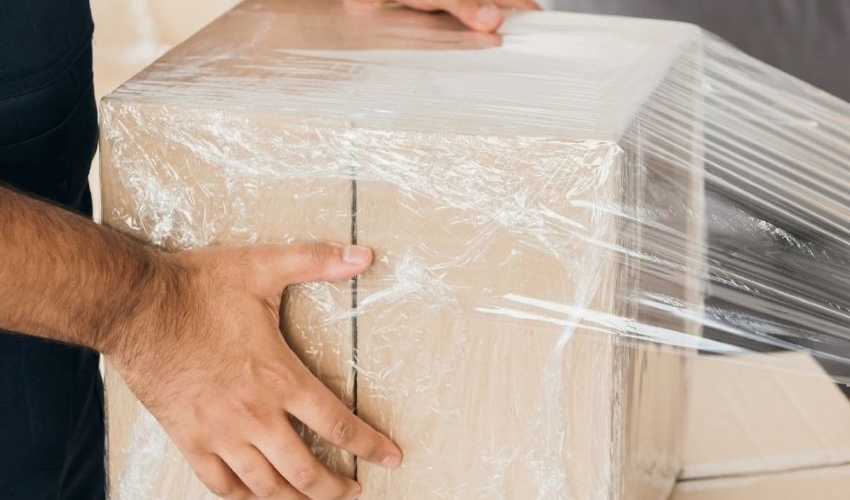
In today’s fast-paced world, effective food storage is essential for maintaining freshness and reducing waste. Bulk plastic wrap plays a vital role in this process, offering a reliable solution for preserving a variety of food items. Its versatility allows it to be used in both home kitchens and commercial settings, making it a staple for chefs and home cooks alike. Whether wrapping sandwiches, covering leftovers, or securing ingredients for meal prep, bulk plastic wrap ensures that food stays fresh longer. Moreover, buying in bulk is not only cost-effective but also convenient, as it reduces the frequency of purchases while providing an ample supply for all your storage needs. Embracing bulk plastic wrap can significantly enhance your food storage practices. Bulk plastic wrap is durable, cost-effective, and perfect for food storage. PWP Stretch Film offers a wide range, including bulk plastic wrap and pallet wrap.
Why Choose Our Stretch Film Over Competitors?
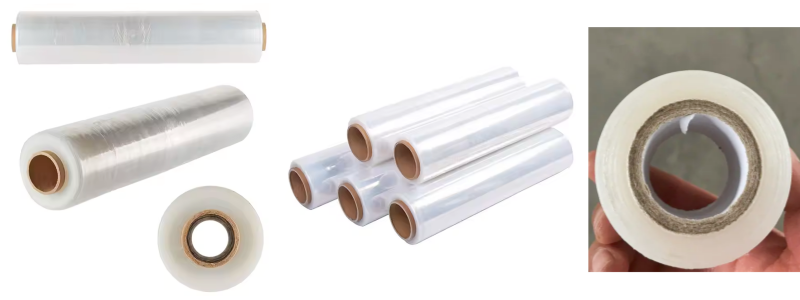
| Attribute | Details |
|---|---|
| Product Name | Bulk Plastic Wrap |
| Materials Used | LLDPE, PE |
| Type | Stretch Film |
| Brand | PWP Stretch Film |
| Place of Origin | Fujian, China |
| Industrial Use | Packaging, Business & Shopping, Supermarkets, Chemical, Industrial |
| Length Options | - Customizable |
| Width Options | - Customizable |
| Thickness Range | 10 to 80 microns |
| Transparency | Transparent |
| Hardness | Soft |
| Processing Type | Casting, Blow Molding |
| Key Features | - Moisture Proof |
| - Anti-static | |
| - Excellent tensile strength and flexibility | |
| - Durable multi-layer (up to 5 layers) construction | |
| - 300% to 500% elongation for efficient wrapping | |
| - Suitable for hand roll and machine roll applications | |
| - Durable performance under various environmental conditions | |
| - Glossy or smooth surface finish | |
| Applications | - Pallet wrapping |
| - Packaging for logistics, warehousing, supermarkets, and groceries | |
| - Chemical and industrial packaging | |
| Certifications | ISO, MSDS, SGS, ROHS |
| Lead Time | 10 to 20 days depending on order specifications |
| MOQ (Minimum Order Quantity) | - From 100kg to 3000kg, depending on the product |
Bulk plastic wrap is an essential packaging material widely used in both domestic and commercial settings. This versatile product is designed to keep food fresh and secure during storage and transit. It serves multiple purposes, including wrapping sandwiches, covering dishes, and sealing ingredients, making it an invaluable tool in any kitchen.
One of the key benefits of bulk plastic wrap is its ability to cling tightly to surfaces, forming an airtight seal. This prevents air and moisture from entering, which helps maintain the quality and freshness of food items for extended periods. In addition to food storage, bulk plastic wrap is also used in various industries for packaging products, protecting items during shipping, and bundling goods for easy handling. For products that require ventilation, breathable stretch film can also be used to provide a controlled environment while maintaining product freshness.
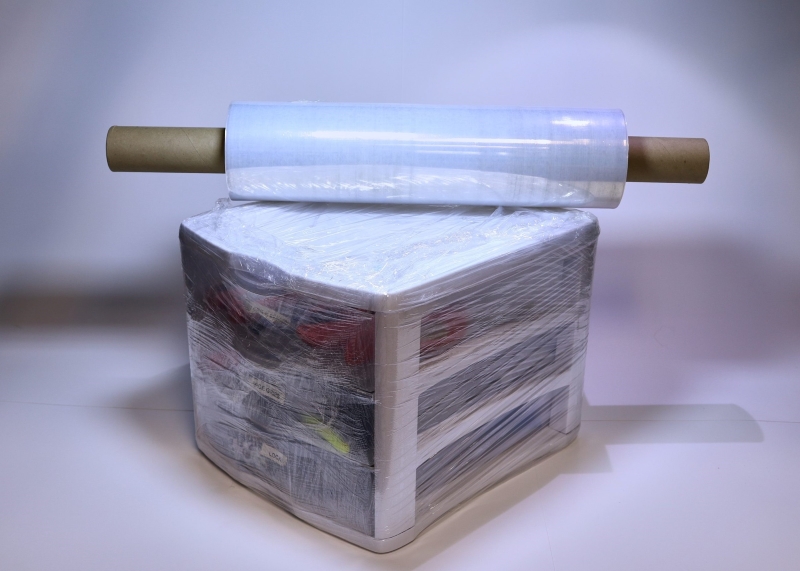
When it comes to bulk plastic wrap, it’s essential to understand the different types available. The two primary categories are stretch film and traditional plastic wrap. Each has unique characteristics and applications that cater to various needs.
| Type | Material | Cling | Thickness | Primary Use | Advantages |
|---|---|---|---|---|---|
| Stretch Film | Cast or blown film | Excellent cling | Varies (usually thicker) | Securing pallet loads, bundling | Strong puncture resistance, durable |
| Traditional Plastic Wrap | Polyethylene | Good cling | Thinner | Food storage, covering dishes | Easy to handle, lightweight |
Stretch film is typically made from cast or blown film, offering superior cling and strength. It’s often used for securing pallets and bundling products because of its durability and resistance to punctures. This type of wrap is designed to stretch around items, providing a tight and secure fit that keeps products stable during transport. The thickness of stretch film can vary, making it suitable for different applications, including heavy-duty uses. Jumbo Roll Stretch Film, for example, is ideal for large-scale packaging and shipping needs, providing efficiency and cost savings when purchased in bulk.
On the other hand, traditional plastic wrap, often made from polyethylene, is thinner and more flexible. It is primarily used for food storage, making it ideal for covering bowls, dishes, and individual food items. While it provides good cling, it may not offer the same level of puncture resistance as stretch film. However, its lightweight nature and ease of use make it a popular choice for everyday kitchen tasks.
Understanding the differences between these two types of bulk plastic wrap can help you choose the right product for your needs. Whether you’re looking to secure large shipments or simply keep your leftovers fresh, there’s a suitable option available in the realm of bulk plastic wrap. Selecting the appropriate type based on your specific requirements can enhance efficiency and effectiveness in your food storage and packaging practices.
Food storage bags are a staple in kitchens, providing convenience and versatility for preserving a variety of food items. When combined with bulk plastic wrap, they offer enhanced protection and prolong the freshness of your food. Below are six key benefits of using plastic wrap alongside food storage bags.
Using bulk plastic wrap over food storage bags creates an airtight barrier that minimizes exposure to air. This significantly reduces the risk of spoilage and keeps food fresh for longer periods.
Bulk plastic wrap helps retain moisture within the food storage bag, preventing items like fruits and vegetables from drying out. This is particularly beneficial for produce that requires a humid environment to maintain its quality.
When food is stored in bags, using bulk plastic wrap as an additional layer of protection helps safeguard against contaminants. It prevents unwanted odors and flavors from seeping in, preserving the original taste of your food.
Plastic wrap can be used to cover food storage bags, making them suitable for a wider range of food items, including marinated meats, sandwiches, and leftover meals. This versatility allows for better organization and easy access to food.
When you use bulk plastic wrap to cover food storage bags, it creates a smooth surface ideal for labeling. You can easily write the contents and date, ensuring that you know what’s inside and when it was stored.
Combining food storage bags with bulk plastic wrap can help you save space in your refrigerator or pantry. Bags can be flattened and stacked efficiently, making it easier to organize your food items.
Bulk plastic wrap plays a crucial role in food preservation by providing an extra layer of protection. Its ability to cling tightly to various surfaces helps to seal in freshness, preventing the growth of bacteria and mold. The effective barrier it forms also protects against freezer burn when storing items in the freezer. By wrapping food tightly with bulk plastic wrap before placing it in food storage bags, you can significantly extend the shelf life of your ingredients and leftovers.
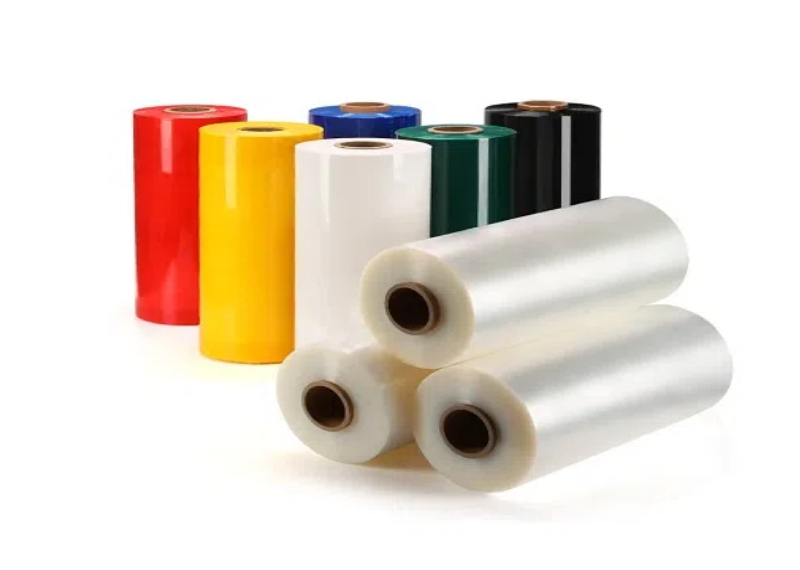
When selecting food storage bags, consider the following tips to ensure optimal performance:
By integrating bulk plastic wrap with food storage bags, you can create an effective system for preserving food, enhancing freshness, and minimizing waste.
Food storage containers are essential tools in any kitchen, providing a reliable way to store and preserve food. When paired with bulk plastic wrap, such as thick cling wrap, they work together to enhance food preservation and organization. The combination of containers and thick cling wrap ensures that food stays fresh longer, is securely sealed, and is easily accessible.
By covering food storage containers with bulk plastic wrap, you create an additional layer of protection that keeps air and moisture out. This helps maintain the freshness of your food for a longer period, especially for items that are prone to drying out.
Food storage containers come in various sizes and shapes, allowing you to store a wide range of food items. Using bulk plastic wrap can further customize your storage solution, enabling you to seal items that don’t fit perfectly in a container.
Containers provide visibility into the contents, making it easy to identify what’s stored inside. Adding bulk plastic wrap to the top helps retain freshness while allowing you to see the contents at a glance, reducing food waste.
Stackable food storage containers maximize vertical space in your refrigerator or pantry. When combined with bulk plastic wrap, you can compress or layer items effectively, making the most of your storage area.
Covering containers with bulk plastic wrap acts as a barrier against spills and leaks, especially when transporting food. This helps keep your refrigerator clean and prevents cross-contamination.
Food storage bags are a popular and practical solution for keeping food fresh, organized, and safe. These bags come with a variety of features designed to meet the needs of both household and commercial kitchens. Here are some of the key features that make food storage bags so effective and versatile:
Food storage bags are made from materials like polyethylene, polypropylene, or durable plastic films, offering strength and tear resistance. This durability ensures that the bags can hold heavy or bulky items without breaking or leaking, making them suitable for long-term storage of both dry and wet foods.
Many food storage bags come with built-in sealing mechanisms such as zip locks, press-to-close seals, or tie closures. These sealing options help prevent air from entering the bag, reducing the risk of contamination and extending the shelf life of food. A tight seal also helps prevent leaks, making these bags perfect for liquids or moist food items.
Food storage bags are available in various sizes and types to accommodate different types of food. They are used for everything from storing leftovers and meal prep items to freezing meat, vegetables, or fruits. Some bags are specifically designed for freezer use, while others are ideal for pantry storage or snacks.
Many food storage bags are reusable, making them an eco-friendly option for reducing waste. These bags can be washed and reused multiple times, which makes them both cost-effective and sustainable, especially compared to disposable plastic wraps or single-use containers.
Certain food storage bags are specially designed to withstand freezing temperatures, making them ideal for storing frozen food items like meats, vegetables, and prepared meals. These bags are thicker and more resistant to freezer burn, ensuring that food stays fresh for longer periods.
Many food storage bags have a built-in barrier that helps protect food from exposure to oxygen and moisture. This feature is crucial for preventing spoilage, maintaining the food’s texture, and preserving its flavor. For items like snacks or dry goods, this barrier helps keep the contents crisp and fresh.
Some food storage bags are microwave-safe, which allows for easy reheating of stored food. This feature makes it convenient to quickly warm up meals directly in the bag without the need for transferring food to another container.
Food storage bags are often clear or semi-transparent, allowing users to easily see the contents without opening the bag. This helps with organization, ensuring that food items are easily identifiable and reducing the likelihood of forgotten items.
Food storage bags come in a range of sizes, from small snack bags to larger freezer and storage bags. This makes it easy to choose the right bag for specific food types or portions, whether you’re packing a sandwich, marinating meat, or storing a bulk amount of produce.
Some food storage bags are designed for specific uses, such as vacuum-seal bags for preserving food in airtight conditions or bags with odor-control features for storing items like fish or onions. These specialized bags provide additional benefits for specific types of food storage needs.
Food storage bags are often a more affordable option compared to containers or glass jars. They offer a simple and inexpensive way to store and organize food, making them ideal for households looking to save money on storage solutions.
Food storage bags are an essential tool in any kitchen, offering a range of features that make them versatile, durable, and efficient. Whether you need to store leftovers, freeze food, or organize pantry items, food storage bags provide an easy, cost-effective, and reliable solution for keeping food fresh and protected.
To ensure maximum freshness when sealing containers with bulk plastic wrap, follow these simple steps:
To optimize food storage using containers and bulk plastic wrap, consider the following best practices:
By utilizing food storage containers alongside bulk plastic wrap, you can enhance the preservation of your food while maintaining an organized kitchen. This combination offers convenience, efficiency, and peace of mind that your food is stored safely.
Finding affordable options for bulk plastic wrap is essential for both home and commercial food storage needs. With the right strategies, you can secure high-quality products without breaking the bank.
To locate cheap bulk plastic wrap, consider the following methods:
Purchasing bulk plastic wrap offers numerous financial advantages:
When choosing bulk plastic wrap, consider the following key features to ensure you make the best purchase:
By following these guidelines and understanding the advantages of purchasing cheap bulk plastic wrap, you can make informed choices that benefit your budget and food storage needs. Whether you’re a home cook or running a business, investing in bulk plastic wrap can lead to significant savings and enhanced convenience.
Purchasing wholesale bulk plastic wrap offers significant benefits for businesses and large families alike. By understanding the advantages, available suppliers, and negotiation strategies, you can maximize your savings and ensure a steady supply of this essential packaging material. For businesses with heavier-duty needs, such as industrial applications, industrial wrap provides the strength and durability required for securing large shipments and equipment.
Buying wholesale bulk plastic wrap typically results in substantial savings compared to retail prices. Businesses that rely on plastic wrap for packaging and storage can significantly lower their operating costs, while large families can stock up without frequent shopping trips.
Wholesale suppliers often provide larger quantities of plastic wrap, ensuring that businesses and families have sufficient stock to meet their needs. This is particularly important for food service operations or households that prepare large meals regularly.
Establishing a relationship with a wholesale supplier ensures that you have a reliable source for bulk plastic wrap. This is crucial for businesses that cannot afford stock shortages, especially during peak operating times.
Wholesale suppliers often offer a range of products, including various gauges, sizes, and types of bulk plastic wrap. This allows buyers to choose the right fit for their specific applications, whether for food storage or industrial uses.
Numerous suppliers specialize in wholesale bulk plastic wrap. Here are some notable options:
PWP Stretch Film is committed to exceeding customer expectations by providing high-quality packaging solutions to ensure the safe distribution of our products. With over 18 years of industry experience, PWP has become a leading manufacturer and supplier of stretch films, pallet wrapping, and stretch packaging. Our company produces and delivers a variety of stretch films in both domestic and international markets, designed to protect goods and ensure smooth distribution. PWP emphasizes innovation, offering comprehensive one-stop packaging solutions, and works closely with trusted suppliers to provide efficient, reliable, and cutting-edge packaging materials.
Products Offered by PWP Stretch Film
The products offered by PWP Stretch Film are designed to provide reliable and customized packaging solutions for various industries, ensuring the safety and protection of goods during transportation and storage.
To maximize your savings when purchasing wholesale bulk plastic wrap, consider the following negotiation strategies:
By leveraging these advantages, exploring different suppliers, and employing effective negotiation tactics, you can ensure that you secure the best deals on wholesale bulk plastic wrap. This approach not only supports your budget but also enhances your overall efficiency in food storage and packaging, especially when incorporating innovative stretch film for more specialized needs.
Locating bulk plastic wrap near you can streamline your purchasing process and provide immediate access to this essential packaging material. Understanding where to find local suppliers, the advantages of shopping locally, and the resources available can enhance your shopping experience.
Begin by checking local retail stores, such as home improvement centers, warehouse clubs, and supermarkets. Many of these stores carry bulk plastic wrap in various sizes and types, allowing you to inspect the quality before purchasing.
Research wholesale distributors in your area. Many suppliers specialize in packaging materials and may offer competitive prices for bulk plastic wrap. A quick online search with terms like “wholesale packaging supplies near me” can yield helpful results.
Engage with local business networks or community groups. Other businesses often share their suppliers or might even collaborate on bulk purchases, resulting in better pricing.
Attend local trade shows or expos focused on packaging, food services, or retail. These events often feature suppliers showcasing their products, giving you the chance to find bulk plastic wrap in person.
One of the primary advantages of shopping locally is the immediate availability of bulk plastic wrap. You can purchase the product and use it right away, without waiting for shipping.
Buying locally eliminates shipping fees, which can add up when ordering in bulk. This helps keep your overall costs down.
Shopping locally supports your community and local economy. By choosing to buy from nearby suppliers, you contribute to the sustainability of local businesses.
Purchasing in person allows you to ask questions, get recommendations, and gauge the quality of products firsthand. This interaction can lead to better service and tailored advice based on your specific needs.
By leveraging these strategies and resources, you can effectively find bulk plastic wrap near you, making your shopping experience more convenient and cost-effective. Whether you’re a business looking to stock up or a household in need of reliable storage solutions, knowing where to find local options can enhance your purchasing power and ensure you have the supplies you need on hand.
When it comes to the pricing of bulk plastic wrap, several factors come into play, influencing the overall cost. Manufacturers take into account a combination of material costs, production processes, and market demands. Other variables, such as packaging, customization, and logistics, also play significant roles in determining the final price. Understanding these factors can help businesses and consumers make more informed decisions when purchasing bulk plastic wrap.
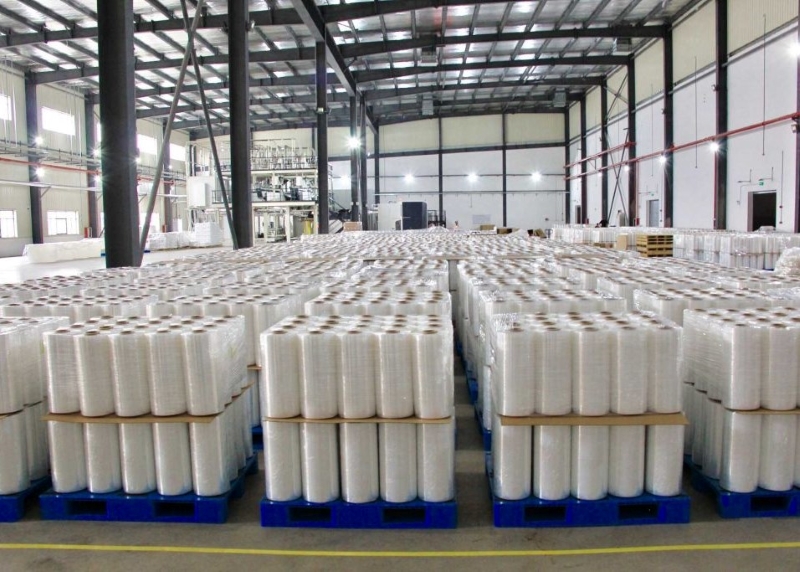
The following table outlines the key factors affecting the pricing of bulk plastic wrap:
| Factor | Description | Impact on Price |
|---|---|---|
| Material Quality | The type of plastic used, such as PVC, PE, or cast film, affects durability and performance. | Higher quality materials lead to higher costs due to production standards. |
| Thickness and Gauge | Thicker plastic wraps require more material and production time. | Thicker wraps typically cost more due to the increased material usage. |
| Production Method | The technology used (manual vs. automated, extrusion vs. blown film) impacts manufacturing efficiency. | Advanced methods increase production speed but may involve higher upfront costs. |
| Order Quantity | Bulk orders or larger quantities often result in reduced per-unit prices. | Larger orders lower costs due to economies of scale in production. |
| Customization | Custom sizes, colors, or prints on the plastic wrap can increase complexity in manufacturing. | Customization adds costs for design, setup, and additional material. |
| Packaging | Packaging options, such as individual rolls vs. bulk packaging, affect overall material and shipping costs. | More specialized packaging increases costs. |
| Logistics and Shipping | Transportation costs, especially for large orders, can affect the final price. | Shipping over long distances or requiring special handling raises prices. |
| Market Demand | Fluctuations in demand due to seasonality or industry trends can impact the cost of bulk plastic wrap. | Higher demand may lead to price increases, especially during peak seasons. |
| Supplier Relationships | Long-term contracts or established supplier relationships can lead to price reductions over time. | Strong relationships with suppliers can lead to discounts and better pricing. |
By considering all of these factors, bulk plastic wrap manufacturers can establish competitive pricing while ensuring they meet customer needs for bulk plastic wrap.
Bulk plastic wrap is a highly versatile packaging material, offering a range of features and applications across different industries. Below are some key uses of bulk plastic wrap:
Overall, bulk plastic wrap is a multifunctional material that provides reliable and cost-effective solutions for packaging, transportation, decoration, and protection. Its flexibility, durability, and range of applications make it an indispensable tool for businesses and consumers alike.
When it comes to packaging and protective solutions, both bulk plastic wrap and shrink wrap are widely used, but they serve different purposes and have distinct characteristics. Below is a detailed comparison of bulk plastic wrap and shrink wrap across several important aspects:
Both bulk plastic wrap and shrink wrap have their own unique benefits depending on the application. Bulk plastic wrap is ideal for flexible, easy-to-apply, and cost-effective solutions, while shrink wrap excels in providing a secure, professional, and tamper-proof finish. Understanding the key differences between these two packaging options allows businesses and consumers to select the right material based on their specific needs.
Saran Wrap and plastic wrap are terms often used interchangeably, but there are some distinctions. Both are types of cling film—a thin plastic film used for sealing food items in containers to keep them fresh over a period. Saran Wrap is a brand name of a specific type of plastic wrap made by the S.C. Johnson company. Originally made from polyvinylidene chloride (PVdC), it was known for its superior cling and barrier properties. However, due to environmental concerns about PVdC, many of these wraps now use polyethylene, which is more environmentally friendly but might offer slightly less cling. In general, while all Saran Wrap is plastic wrap, not all plastic wrap is Saran Wrap. The term “plastic wrap” encompasses a broader category of similar products by various manufacturers. Regardless of brand differences, they serve the same basic purpose of preserving food freshness.
The plastic wrap shortage can be attributed to several interconnected factors affecting global supply chains. During recent years, disruptions caused by the COVID-19 pandemic have resulted in production slowdowns and logistical challenges. Factories faced temporary shutdowns or reduced operations, leading to a backlog in manufacturing. Simultaneously, global shipping constraints, including port congestions and container shortages, have exacerbated delays in the distribution of goods, including plastic materials. An increased demand for packaging materials due to a rise in home cooking and food storage during lockdowns has further strained supply. Environmental regulations and movements towards sustainable alternatives also affect the production choices of manufacturers, shifting some away from traditional plastic wrap production. Consequently, while efforts are underway to stabilize production and supply, these factors together contribute to the current shortages, impacting availability and sometimes leading to higher prices in the market.
Costco is known for selling products in bulk, including its brand of plastic wrap, which comes under the Kirkland Signature label. Costco’s plastic wrap is notably generous in length, typically offering rolls that measure approximately 750 square feet or sometimes even longer. This makes it a popular choice for households that require large quantities of wrap for food storage and other uses, as it reduces the frequency of repurchase and offers good value for money. These rolls are usually accompanied by a sliding cutter, making it convenient to cut the wrap according to the needed size efficiently. The substantial length and quality of Costco’s plastic wrap, coupled with its affordable pricing, make it favorable among consumers, especially for those who regularly use plastic wrap in bulk. However, availability might vary based on location and current supply conditions.
For those looking to reduce their environmental footprint or combat the plastic wrap shortage, there are several effective alternatives available. Beeswax wraps have gained popularity as a natural and reusable option. Made from organic cotton coated with beeswax, resin, and jojoba oil, these wraps can mold around food items and remain sticky, similar to traditional plastic wrap. Silicone lids and stretchable covers are also viable options, as they can fit securely over bowls and containers of various sizes. For an economical and eco-friendly alternative, consider using glass or stainless steel food containers, which offer an airtight seal without the need for plastic coverings. Additionally, parchment paper and aluminum foil can be used for some applications, though they may not have the same range of uses as cling film. Each of these alternatives provides a sustainable solution, catering to different needs while reducing reliance on single-use plastics

My name is James Thompson, and I’m the editor of this website dedicated to Stretch Film, Pallet Wrap, and Stretch Wrap products.
My passion for packaging began when I noticed the challenges companies face in securing their products efficiently for transportation and storage. This inspired me to delve deep into the world of stretch films and pallet wraps, exploring the latest technologies and best practices.
I aim to provide valuable insights, practical tips, and up-to-date industry trends to assist you in making informed decisions. Whether you’re a small business owner or part of a large corporation, my goal is to support you in optimizing your operations and ensuring your products reach their destination safely.
Thank you for visiting, and I look forward to accompanying you on your journey toward better packaging solutions.
Comments are closed